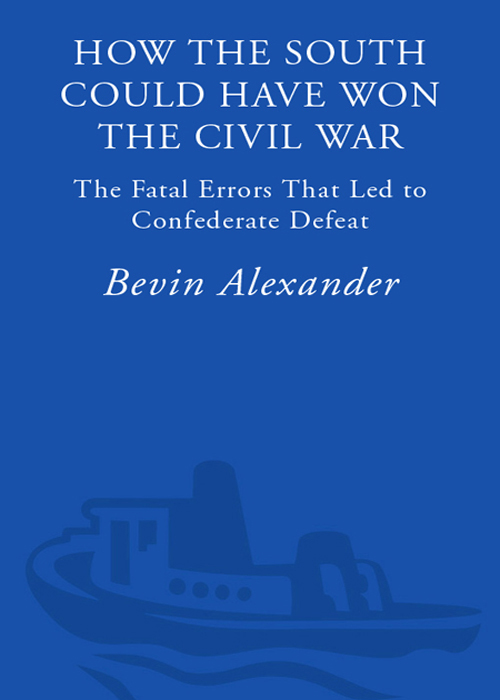
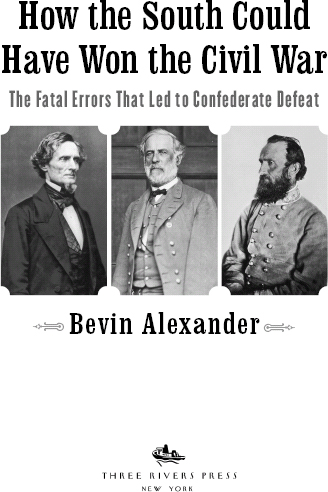
Contents
In loving memory of my brother,
John McAuley Alexander Jr. (19192007),
a man of honor and a combat officer in World War II
Maps

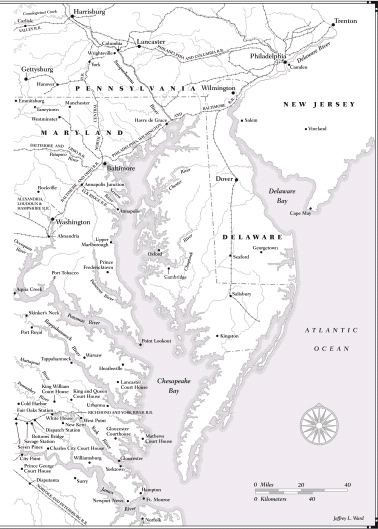
 Introduction
Introduction
No Victory Is Inevitable
T HE CIVIL WAR continues to fascinate Americans because it is uniquely our war. In it we were fighting ourselves. The war evoked the most intense passions Americans have ever felt, experienced all the more deeply because they were played out within our own society, sometimes within our own families. One of the questions that has been debated ever since 1865 is whether any other outcome was possible. That is, could the South have won the war?
To many observers the very question seems absurd. Given that the Confederacy had a third of the population and an eleventh of the industry of the North, the Souths defeat was, according to this view, unavoidable.
But that view is wrong. This book contends that the South most definitely could have won the war, and shows in a number of cases how a Confederate victory could have come about.
Beyond the actual opportunities presented to the Confederacy, we should remember a broader factthere is nothing inevitable about military victory, even for a state with apparently overwhelming strength. The Greeks beat the Persians at Marathon, Alexander destroyed the Persian Empire, the Americans defeated the British in the Revolution, Napolon Bonaparte hobbled huge alliances in his early wars. In all of these cases the victor was puny and weak by comparison with his opponent.
Its true that the more powerful state usually wins. But this is because bigger states normally wear down weaker states by attrition. On average, military leadership is about equal on both sides, and this factor as a rule is not decisive. The tables can be turned, however, when a weak state produces inspired leaders. Even when great generals are only partially heeded, astonishing results can occur. For example, in World War II Adolf Hitler refused to give the German general Erwin Rommel more than scanty forces in North Africa, but Rommel nevertheless nearly brought about an Axis victory because he was head and shoulders above the British generals who came against him.
The Civil War actually was a near thing, and it was a near thing because Confederate military leadership was generally far superior to Union leadership. This superiority produced a number of Southern successes. It failed to bring about victory in the end only because the top Confederate political and military leaders failed to understand, and thus did not exploit, the opportunities offered them.
Three men more than any others determined the outcome of the American Civil Warthe Confederacys president, Jefferson Davis, and two generals, Robert E. Lee and Thomas Stonewall Jackson. Jackson figured out almost from the outset how to win the war, but neither Davis nor Lee was willing to follow his recommendations. It was the fundamentally different views of warfare of these three men that settled the fate of the Southnot the seemingly overwhelming power of the North, and not the actions of Union commanders and their armies.
Davis was opposed to offensive action against the North. He wanted to remain on the defensive in the belief that the major European powers would intervene on the Confederacys side to guarantee cotton for their mills, or that the North would tire of the war and give up. Even after it became plain that no European nation would come to the Souths aid, Davis adhered to his conviction that the Northern people would grow weary of the war.
Lee, on the other hand, was focused on conducting an offensive war against the armies of the North. He did not see the war as a collision between the Northern people and the Southern people. He saw it as a struggle between the governments and the official armies of the two regions. Thus he wanted to confront the Union armies directly, not to strike at Northern industries, farms, and railroads, except as they served Federal armies. Without a doubt Lee was an extraordinary leader, inspiring remarkable devotion among his men and embodying the traits of honor, courage, and dedication to a cause. As a field commander, too, he was vastly superior to all of the Union commanders who came against him.1 His mastery of battle tactics, in fact, was what permitted the South to endure four years of brutal war. But Lees overall strategyhis insistence on frontal assaultsled to inevitable defeat. No matter how skilled a battle leader Lee was, he could never win the war by pitting the far weaker resources of the South against the tremendous economic and military power of the North. This was particularly true because revolutionary advances in weaponry had made direct assaults far more difficult to pull off and far more dangerous. Casualties in the Civil War were staggering.
Recognizing the need to adapt to the new kind of war in which they were immersed, Jackson developed a polar opposite approach. He proposed moving against the Northern peoples industries and other means of livelihood. He wanted to avoid Northern strength, its field armies, and strike at Northern weakness, its undefended factories, farms, and railroads. His strategy, in short, was to bypass the Union armies and to win indirectly by assaulting the Northern peoples will to pursue the war. He proposed making unrelenting war amid the homes of the Northern people in the conviction that this would force them to understand what it will cost them to hold the South in the Union at the bayonets point.2 Significantly, William Tecumseh Sherman won the war for the North by employing precisely the strategy that Stonewall Jackson had tried but failed to get the South to follow: he conducted unrelenting war on the people and the property of Georgia in his march from Chattanooga to Atlanta, and from Atlanta to the sea, in 1864. This campaign broke the back of Southern resistance.
Failure to recognize the realities facing the South and disagreement over strategy are what doomed the Confederacy. That it took four bitter years of the hardest war and the most casualties in American history is due primarily to the brilliant battle leadership of Lee, Jackson, and a host of dedicated Southern officers. But wars are not won by heavy losses heroically sustained. Wars are won by ingenious plans correctly implemented. Jackson, among others, offered the South plans that would have succeeded. Davis and Leeexcept at Chancellorsvillerefused to carry them out.

THREE DECADES BEFORE the Civil War, the great Prussian strategist Karl von Clausewitz (17801831) argued that in a country involved in an insurrection or torn by internal dissension, the capital, the chief leader, and public opinion constitute the Schwerpunkt, or center of gravity, where collapse has the greatest chance of occurring.3 Following this theory, the Confederacys most glittering opportunity lay not in defeating the Northern field army in Virginia but in isolating or capturing Washington, evicting Lincoln and his government, and damaging Northern industry and railroads in order to turn public opinion against the war.
Next page

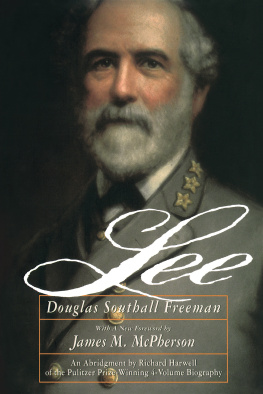
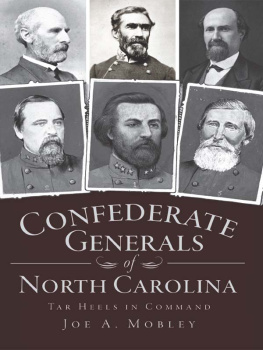

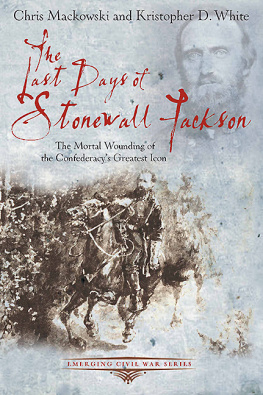
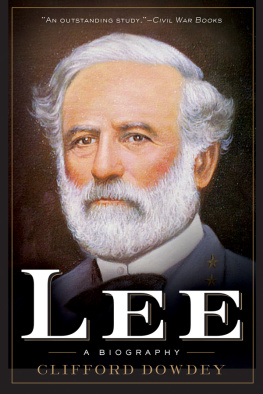

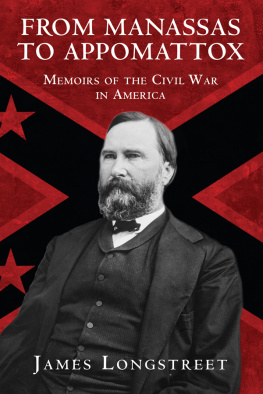
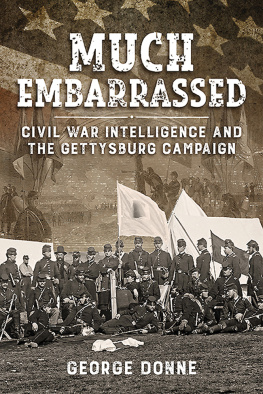
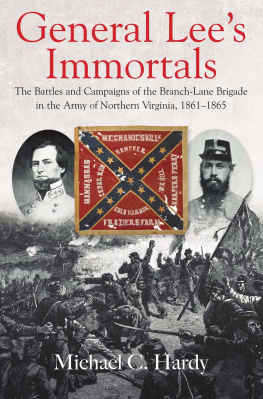
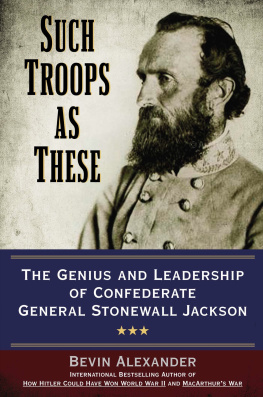
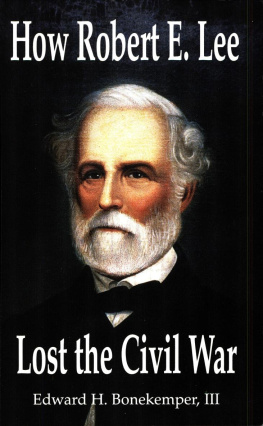





 Introduction
Introduction
